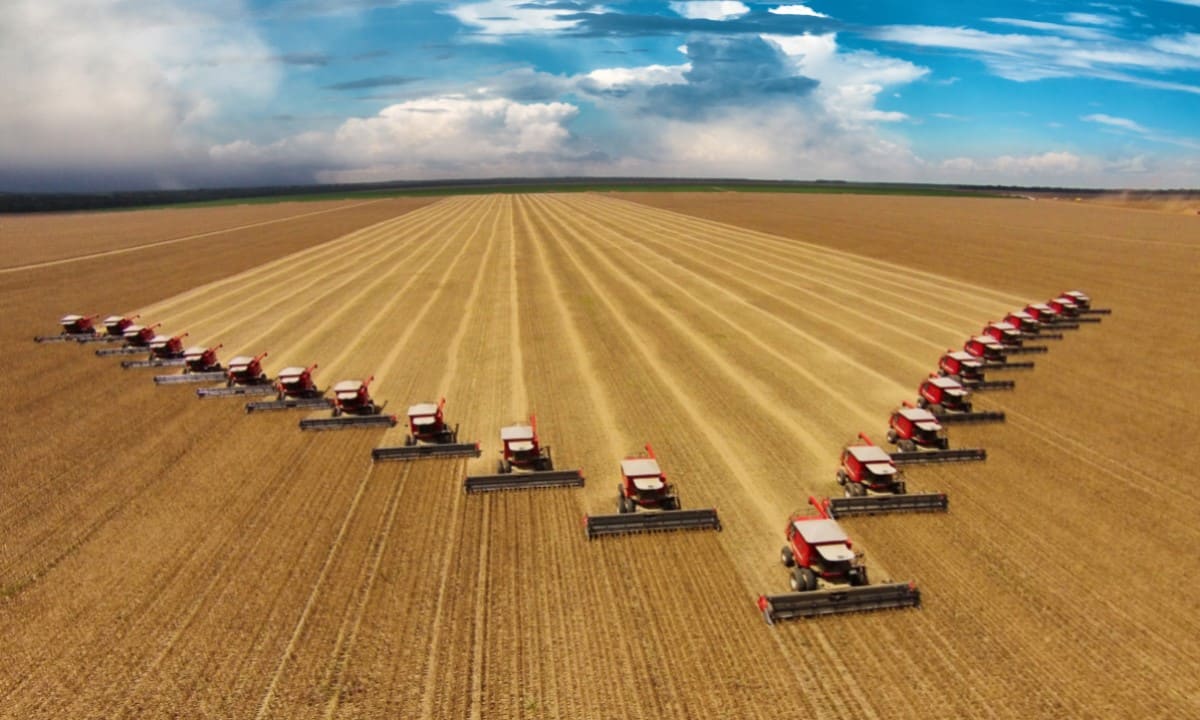Nawaz Khan
Corporate farming, also known as agribusiness or industrial farming, is a system of agriculture where large corporations or conglomerates are involved in the production of agricultural products on a large scale. This approach to farming involves sizeable investment in land, machinery, technology, and human resources, with the goal of maximizing efficiency, productivity, and profitability in agricultural operations.
Corporate farming, also known as agribusiness or industrial farming, is a system of agriculture where large corporations or conglomerates are involved in the production of agricultural products on a large scale. This approach to farming involves sizeable investment in land, machinery, technology, and human resources, with the goal of maximizing efficiency, productivity, and profitability in agricultural operations.
The introduction of corporate farming in Pakistan is a significant shift in the country’s agricultural landscape. Corporate farming, involving large-scale agricultural operations, has the potential to bring about prosperity provided that strict rules are formed and implemented to benefit local communities and farmers. The government’s role in regulating and supporting corporate farming is crucial in ensuring that the potential benefits are realized while mitigating potential negative impacts.
Examining international examples provides insights into both successful and detrimental implementations of corporate farming. For instance, in the Netherlands, corporate farming has been successfully integrated into their agricultural practices, demonstrating operational efficiency and resource utilization without significant negative social or environmental impacts.
Integrating corporate farming with national and international supply chains is a critical step for its success, requiring reliable access to machinery, inputs, and technical expertise. However, it’s not just about the logistics. It’s imperative to shift the viewpoint of the agriculture sector from solely providing food to becoming an engine of economic growth. This shift in perspective can inspire and motivate the audience to embrace new approaches.
While corporate farming presents potential benefits for stakeholders and agricultural development, it is crucial to address concerns about land distribution and equitable benefits. This emphasis on addressing concerns reassures the audience about the thoroughness of the evaluation process. Through effective indigenization, corporate farming may hold the key to unlocking its true potential in Pakistan’s agricultural sector.
The introduction of corporate farming in Pakistan is a significant shift in the country’s agricultural landscape. Corporate farming, involving large-scale agricultural operations, has the potential to bring about prosperity provided that strict rules are formed and implemented to benefit local communities and farmers. The government’s role in regulating and supporting corporate farming is crucial in ensuring that the potential benefits are realized while mitigating potential negative impacts.
While corporate farming could revitalize the agriculture sector, there are concerns regarding its potential negative impacts. One major criticism is the potential displacement of small farmers and denial of access to grazing lands for herders and livestock farmers. Additionally, there are worries about increased food prices due to greater food exports, further affecting domestic consumers. Another significant concern is the potential environmental impacts of large-scale farming, such as increased water usage and soil degradation, which could undermine the long-term sustainability of the sector.
Examining international examples provides insights into both successful and detrimental implementations of corporate farming. For instance, in Brazil, the introduction of corporate farming led to significant deforestation and displacement of indigenous communities. On the other hand, in the Netherlands, corporate farming has been successfully integrated into their agricultural practices, demonstrating operational efficiency and resource utilization without significant negative social or environmental impacts.
In the context of Pakistan, it’s important to consider the existing distribution of agricultural lands. The introduction of corporate farming raises concerns about the creation of a new class of landowners, potentially leading to alienation among native people and negative environmental impacts. Furthermore, the financial implications of implementing corporate farming, including the cost of constructing new irrigation infrastructure, raise questions about its feasibility and public welfare orientation.
Integrating corporate farming with national and international supply chains is a critical step for its success, requiring reliable access to machinery, inputs, and technical expertise. However, it’s not just about the logistics. It’s imperative to shift the viewpoint of the agriculture sector from solely providing food to becoming an engine of economic growth. This shift in perspective can inspire and motivate the audience to embrace new approaches.
While corporate farming presents potential benefits for stakeholders and agricultural development, it is crucial to address concerns about land distribution and equitable benefits. This emphasis on addressing concerns reassures the audience about the thoroughness of the evaluation process. Through effective indigenization, corporate farming may hold the key to unlocking its true potential in Pakistan’s agricultural sector.
















